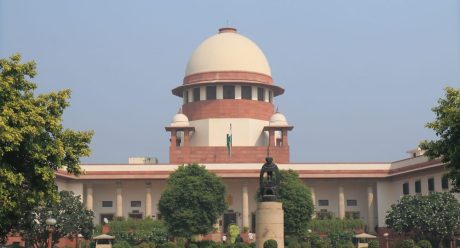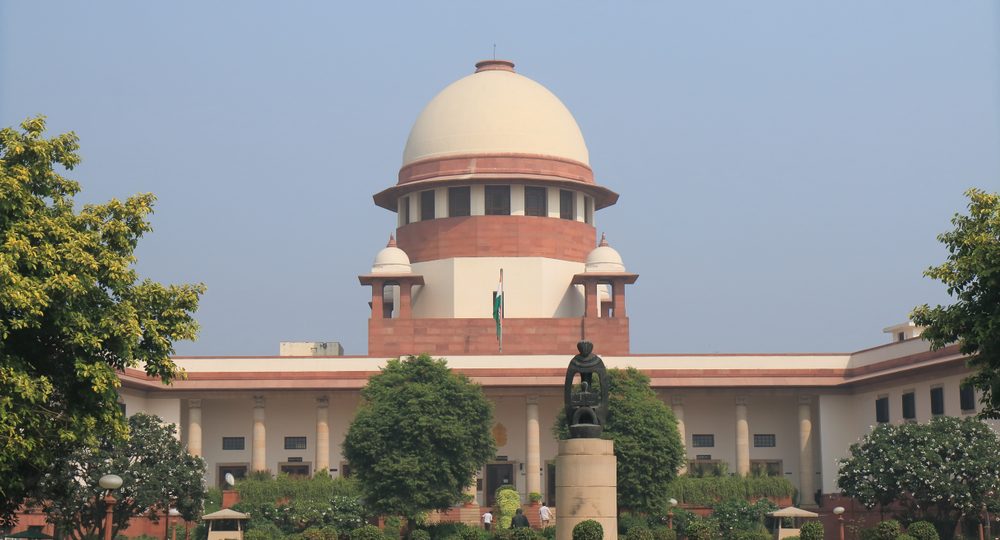The past year has been favourable for the growth of the arbitration regime in India. Carrying forward with the trends to reform the Indian Arbitration and Conciliation Act 1996 (the “Act”), the Expert Committee on Arbitration Law submitted its report in February 2024 and a draft arbitration bill is in circulation for comments before being introduced in the Indian Parliament. The Arbitration Bar of India was launched as a professional association in May 2024 and the Permanent Court of Arbitration opened an office in New Delhi in September 2024, signifying key milestones in the practice of arbitration in India.
However, the decision of the Supreme Court of India in Delhi Metro Rail Corporation v Delhi Airport Metro Express to allow for the setting aside of an arbitral award under the exceptional powers of the court, as elaborated on below, has overshadowed the positive strides taken by the courts and the wider arbitration community in India. In addition, the ‘Guidelines for Arbitration and Mediation in Contracts of Domestic Public Procurement’ issued by the Procurement Policy Division of the Government of India’s Ministry of Finance in June 2024 seem to discourage arbitration and promote mediation for the resolution of disputes. These instances suggest that institutional support for the practice of arbitration as a means of dispute resolution could be currently wavering and require continuous strengthening.
In spite of the above, the courts in India have been working towards promoting an arbitration-friendly environment. In this article, Stewarts’ India team comprising Sherina Petit, Nishant Nath Singh, Nooreen Sarna, Muizz Drabu, and Taronish Mistry provide a concise overview of the key arbitration judgments delivered by the Indian judiciary from 2024, offering practical insights into the implications and significant contributions of the judgments to the practice of arbitration both domestically and internationally.
An overview of key arbitral decisions delivered in 2024

Allied-Dynamic Joint Venture v. Ircon International Ltd
The Delhi High Court held that if a party did not raise objections regarding arbitrator bias during the arbitral proceedings, it cannot seek recourse on this basis while challenging the award. The court clarified that mere letters from one party raising the issue of bias, without any corresponding application for formal adjudication on the allegations, would be an insufficient basis to raise a ground of bias after the arbitral award is rendered. A party’s conduct in such a case, having fully participated in the arbitral proceedings, would constitute a waiver.

Vedanta Limited v. Shreeji Shipping
The Delhi High Court held that an arbitration agreement that offered the choice of multiple seats of arbitration to the parties would not be void on the grounds of uncertainty or ambiguity. Such an arbitration clause merely gives the parties an option to invoke the jurisdiction of any of the courts identified, and it is then up to the parties to choose the jurisdiction that will govern the arbitration proceedings.

Gayatri Balasamy v. ISG Novasoft Technologies Limited
The issue of whether a court can modify an arbitral award and, if so, to what extent was referred by a three-judge bench of the Supreme Court of India to a larger bench. Due to the frequency of cases involving this question and the conflicting case law on this issue, the Supreme Court of India was of the view that an authoritative pronouncement was essential to clarify the law.

M/S Arif Azim Co Ltd v. M/S Aptech Ltd
The Supreme Court of India observed that a three-year limitation period to file a petition for the appointment of an arbitrator only commences once a valid notice invoking arbitration has been issued. The Supreme Court of India set out a two-pronged determination to be made prior to appointing an arbitral tribunal: first, whether the petition for appointment is filed within time and second, whether the underlying claims are filed within time as at the date of commencement of the arbitration proceedings.

Avitel Post Studioz Limited & Ors. v. HSBC PI Holdings (Mauritius) Limited
In line with best practices in international arbitration, the Supreme Court of India held that the enforcement of foreign awards should only be refused on grounds of bias in exceptional circumstances. It was emphasised that “an internationally recognised narrow standard of public policy when dealing with the aspect of bias” must be adopted for foreign awards. This approach is in stark contrast to the court’s consideration of domestic awards, where broad public policy considerations are weighed. The judgment also notes that bona fide challenges to the arbitral award must be made in a timely manner.

NBCC (India) Limited v. Zillion Infraprojects Private Limited
The Supreme Court of India observed that a general reference in a contract to another contract or document would not result in the incorporation of the arbitration clause from the referred contract or document. Referring to the prior precedents, it was emphasised that there must be a specific reference in a contract to an arbitration clause of another contract in order to incorporate the provision, as that would signify the intention of the parties to arbitrate in those terms.

Delhi Metro Rail Corporation v. Delhi Airport Metro Express Pvt. Ltd
In a rare exercise of its curative power under Article 142 of the Constitution of India, the Supreme Court of India set aside a US$960m domestic arbitral award. After four previous decisions on the challenge to the award, the court held that the award was perverse and patently illegal as it adopted an unreasonable contractual interpretation and overlooked vital evidence. The court’s curative jurisdiction was invoked in this case to cure a “grave miscarriage of justice” and prevent abuse of process.

National Highway Authority of India v. M/s Hindustan Construction Company Ltd
The Supreme Court of India clarified that the powers of a court to set aside an award do not allow it to reconsider findings on the construction of the contract so long as they are plausible. The court reiterated the limited scope for interference under the Act and clarified that a court does not sit in appeal against an award and was therefore prevented from considering errors of fact by an arbitral tribunal. Issues of the construction of contractual terms are solely left for the determination of the arbitral tribunal.

Dani Wooltex Corporation & Ors. v. Sheil Properties Pvt. Ltd. & Anr
The Supreme Court of India clarified that the power of an arbitral tribunal to terminate arbitration proceedings can only be exercised if the continuation of proceedings has genuinely become unnecessary or impossible. It was observed by the court that it was the duty of the arbitral tribunal to schedule hearings even if the parties did not request them and that non-appearance by a party does not in itself render proceedings unnecessary. An arbitral tribunal can terminate proceedings only if the abandonment of proceedings is unambiguously established. The mere absence in proceedings or failure to participate does not per se amount to abandonment and would not be sufficient to initiate the process for termination of proceedings.

SBI General Insurance Co Ltd v. Krish Spinning
The Supreme Court of India, while dealing with a case concerning the full and final settlement of an original contract, observed that a court could refer matters under the arbitration agreement/clause of the original contract if a dispute arises about the full and final settlement of the claim. The discharge of the original contract would not mean the arbitration agreement has been terminated, and issues concerning “accord and satisfaction” of the original contract must be examined by the arbitrator, not the referral court.

DLF Ltd. (formerly known as DLF Universal Ltd) v. Koncar Generators and Motors Ltd
The Supreme Court has confirmed that the applicable foreign exchange rate for the conversion of a foreign currency arbitral award into Indian rupees would be the rate existing as at the date the award becomes enforceable. This position is adopted on the reasoning that a foreign award becomes enforceable when the objections against it are finally decided. The decision went on to clarify that the currency rate applied to any partial payments made during the pendency of objections to the award (with the award holder being permitted to withdraw the same) would be calculated on the conversion rate as at the date of the deposit. In the event the award holder faces issues in the withdrawal of funds, the conversion date would be when the award becomes enforceable.

Rohan Builders (India) Private Limited v. Berger Paints India Limited
The Supreme Court of India has held that an application to extend the time for issuance of an arbitral award can be made even after the expiry of the statutory prescribed term of 12 months or the extended period of six months. The Supreme Court clarified that the termination of the mandate under the Act was not “absolutistic” in character but conditional upon the non-filing of an extension application. However, the court clarified that the power of the court to extend the time of the arbitrator’s mandate is only to be exercised where there is sufficient cause. That exercise of judicial discretion and the ability of the court to impose terms and conditions on the extension granted would prevent a party from abusing the process.

Ajay Madhusudan Patel & Ors. v. Jyotirindra S. Patel & Ors
The Supreme Court has observed that a non-signatory to the arbitration agreement could be brought within the ambit of the arbitration agreement through its conduct or relationship with the signatory party. The intention to be bound by the arbitration clause could be inferred from the circumstances of the non-signatory’s positive engagement with the agreement, such as positive, direct and substantial involvement in the negotiation or performance of the contract. The court emphasised that the referral court must take a prima facie view on this. However, it may be finally decided by the arbitral tribunal based on the evidence in the proceedings.

M/S Arif Azim Co. Ltd. v. M/s Micromax Informatics FZE
The Supreme Court of India refused to refer a party to arbitration as it held that an arbitration agreement that confers non-exclusive jurisdiction to a foreign court (without specifying any other court) would be considered as the seat of the arbitration with supervisory jurisdiction, not the courts in India. The court observed that the seat of arbitration would, first and foremost, be determined as the place of arbitration expressly designated in the agreement to anchor the arbitration proceedings without any contrary factors indicating otherwise. Such place would be considered the seat even if contractually termed as the “venue”. The court further observed that the moment a seat is determined, it is akin to an exclusive jurisdiction clause where the courts of that seat exercise supervisory jurisdiction. The court observed that the “close connection test” would be applicable only where there is no express or implied designation of a place as the seat of arbitration. In the same vein, the doctrine of forum non conveniens (that a court should decline to hear a case if another court would provide a more appropriate forum for the parties and evidence) may be relied upon to resolve a dispute where two or more places have been designed, expressly or impliedly, as the seat in the arbitration agreement.

Central Organisation for Railway Electrification v. M/s ECI SPIC SMO MCML (JV)
A five-judge bench of the Supreme Court has addressed the critical issue of the validity of the unilateral appointment of arbitrators under public-private contracts in India, including the selection of arbitrators from a curated panel prepared by government undertakings. The Supreme Court has ruled that the appointment of arbitrators under agreements that allowed one party to prescribe the list of potential arbitrators and have the final say in the appointment is contrary to the equal treatment of parties in arbitration and the principles of equality under the Indian Constitution.
The court recognised that parties must have similar rights for a fair and impartial process in the arbitration to take place, and, as such, unilateral arbitral appointment by a party interested in the outcome of the arbitration would give rise to justifiable doubts about the impartiality and independence of the arbitrator. The court observed that the principle of party autonomy in regard to the appointment of arbitrators could not be extended to allow deviation from the mandatory provisions on independence and impartiality of the arbitral process and equal treatment of parties. However, the court especially noted that parties could waive objections to the unilateral appointment if an express waiver in writing were given upon commencement of the dispute.
Insights and analysis of trends
The decisions explored above offer helpful guidance to parties and legal practitioners when considering the practice and legal landscape of arbitrations related to India. We set out below key takeaways from these judgments:
Arbitration agreements
Parties should be mindful of adopting precise language when drafting dispute resolution clauses and ensure that specific references are made to arbitration clauses, especially in construction contracts, to avoid any challenge to the arbitration itself. Parties should agree upon the seat of the arbitration during the contract drafting process to avoid any issues at a later stage.
Parties should be careful with their commercial dealings, as the Indian courts have allowed for a non-signatory to an arbitration agreement to be brought within the ambit of the arbitration agreement through its conduct or relationship with the signatory party. Parties to potential disputes are advised to reconsider their position considering this development.
Further, the full and final settlement of an original contract would not extinguish the arbitration agreement under such original contract. Accordingly, parties would be entitled to initiate arbitration claims under the arbitration agreement of such original contract.
Non-exclusive jurisdiction
The Indian courts have upheld the validity of non-exclusive jurisdiction agreements and outlined how courts must approach such agreements. This confirms their legal position and ensures that grounds of uncertainty or ambiguity do not set aside such agreements.
Independence and impartiality of arbitrators
Parties to arbitration are well-advised to raise issues concerning bias of arbitrators at the earliest stage, with a formal challenge being instituted against the appointment. Failure to do so may deny a party the opportunity to raise it at the stage of enforcement of the arbitral award. The imbalance in unilateral appointments in public-private contracts has also been eliminated and is likely to have a significant impact on government contracts in India.
Limitation period
The recognition of a three-year time period to file arbitration petitions for the appointment of arbitrators could potentially lead to resuscitating claims between parties, and parties would be well-advised to reconsider their position.
Challenge and enforcement
The courts have made helpful observations in the past year to assure parties about their commitment to the arbitration regime in India. The courts have maintained the position that there would be no interference in findings on the construction of the contract. The courts have also clarified the date to determine the applicable foreign exchange rate for the conversion of a foreign currency arbitral award into Indian rupees.
The reference to a larger bench by the Supreme Court of India in relation to setting aside an arbitral award is much needed and highly anticipated as it will lay down the contours of such a challenge. It may address the unease caused by Delhi Metro Rail Corporation v. Delhi Airport Metro Express. These developments will assist the parties in assessing their position and commercial priorities in ongoing arbitrations.
Termination of arbitration
Parties can be at ease in respect of the statutory timelines prescribed under the Act for arbitrations in India. The courts have allowed for such timelines to be extended at their discretion. The courts have also clarified that it is the duty of the arbitral tribunal to schedule hearings even if the parties do not request them. Arbitration proceedings would be terminated if the continuation of proceedings has genuinely become unnecessary or impossible
Conclusion
These decisions signify the awareness of the courts regarding the commercial issues and challenges faced by the parties engaged in the arbitral process in India.
The efforts by the government, legal practitioners, and the judiciary reflect a positive trend toward adopting international standards for arbitration in India. These efforts lay down the path towards establishing India as a strong, leading, safe and pro-arbitration jurisdiction in South Asia.
You can find further information regarding our expertise, experience and team on our International Arbitration page.
If you require assistance from our team, please contact us.
Subscribe – In order to receive our news straight to your inbox, subscribe here. Our newsletters are sent no more than once a month.







